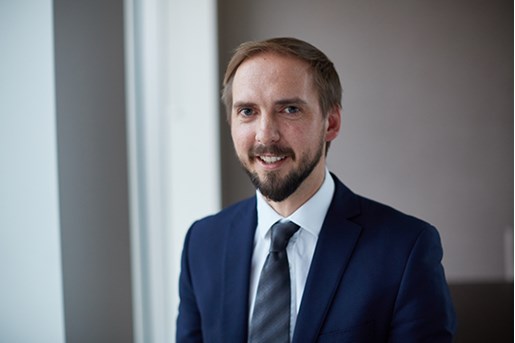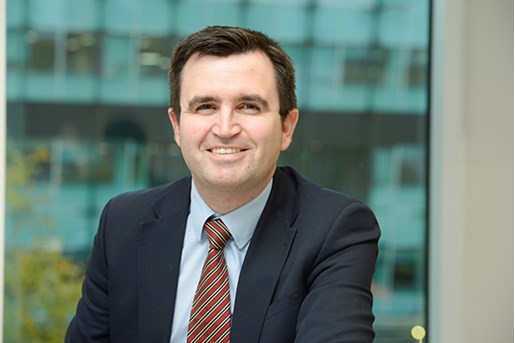Welcome to the February edition of Addleshaw Goddard's Africa Business Group's newsletter.
This month's edition focuses on the activities of and challenges associated with various issues, particularly around financial crime, bribery and corruption.
Particular highlights this month include an outline of the latest Transparency International Corruption Perceptions index, its implications for Africa, including some of the success stories from the continent. We also analyse the OECD's latest recommendations on combatting bribery and their uptake in South Africa, we provide an overview of recent examples of the return of funds seized via international enforcement to affected countries, and discuss the implications for Africa of the United States published strategy on countering corruption.
With thanks to our external contributors, Bentsi-Enchill Letsa & Ankomah and ENS.
We hope you enjoy this month's edition, as always please feel free to get in touch if you have questions relating to any of the issues identified.
Contributor Articles
- Latest OECD Recommendation on Combating Bribery: What does this mean for Africa?
On 26 November 2021, the Organisation for Economic Co-operation and Development (OECD) Council adopted the 2021 Recommendation for Further Combating Bribery of Foreign Public Officials in International Business Transactions (the 2021 Recommendation).
The OECD is an intergovernmental economic organisation that has long focussed on standardising global efforts to fight corruption. In 1997, it introduced the OECD Convention on Combating Bribery of Foreign Public Officials in International Business Transactions (the OECD Convention). A legally binding international agreement, signatories to the OECD Convention agreed to implement standards to criminalise bribery of foreign public officials. 44 countries have adopted the Convention, including South Africa.
- Unravelling State Capture in South Africa
The South African Judicial Commission of Inquiry into Allegations of State Capture, Corruption and Fraud in the Public Sector including Organs of State (“the Commission” or “the Zondo Commission”) was established on 23 January 2018 pursuant to the remedial action taken by South Africa’s former Public Protector, Advocate Thuli Madonsela (“Adv Madonsela”) in her “State of Capture” report dated 14 October 2016.
- Transparency International's Corruption Perceptions Index 2021: An African Perspective
Sub-Saharan Africa has again been ranked as the lowest scoring region on Transparency International's Corruption Perception Index for 2021 (the "Index").
Produced yearly by international anti-corruption organisation Transparency International, the Index ranks 180 countries across the globe by measuring how corrupt each country's public sector is perceived to be. The results are given on a scale of 0 (highly corrupt) to 100 (very clean). A score of less than 50 indicates that a country has serious corruption problems. The Index is used by compliance professionals worldwide as a reference tool for risk assessments, due diligence and anti-corruption training purposes.
- United States issue its first US Strategy on Countering Corruption
On 6 December 2021 the U.S Government issued its first Strategy on Countering Corruption (the Strategy) outlining how the US will prevent corruption through its work with foreign governments and other agencies. The Strategy was published after a National Security Study Memorandum review identified anti-corruption as a core national security interest for the U.S.
The Strategy highlights the global dimensions of corruption, how international financial systems can be abused to hide assets and money-launder proceeds of crime, and the detrimental effect corruption has on the rule-of-law, democracy and the protection of a fair and equitable society for U.S citizens.
The Fact Sheet: U.S Strategy on Countering Corruption published to accompany the Strategy states that these announcements mark 'a new chapter' in U.S efforts to prevent and limit corruption.
- Repatriating confiscated assets to their countries of origin: is the UK doing enough?
Global corruption is its own economy: so-called illicit financial flows run into billions if not trillions of dollars annually, in bribes, stolen public funds and diverted foreign aid and foreign direct investment, among other common forms of corruption. People living in developing and transition countries suffer corruption's worst effects, with the loss of investment in public health killing an estimated 140,000 children every year.
Illicit financial flows usually end up hidden overseas, away from their country of origin. The UN Convention against Corruption ("UNCAC") Coalition calls the UK "a safe haven for corrupt assets stolen around the world". What is the UK doing to identify and confiscate such assets, and what does it do with such assets that it does confiscate? What conditions must be met before confiscated assets can be repatriated to their country of origin? This article briefly outlines the international legal framework for repatriation, and discusses the steps taken by the UK to facilitate the repatriation of confiscated assets to their countries of origin, the existing barriers to repatriation, and what improvements the UK may make to restore more confiscated assets to their countries of origin.
- Enforcement of Foreign Arbitral Awards: Ghana
This article presents the legal regime on the enforcement of foreign arbitral awards in Ghana, following the passage of the Alternative Dispute Resolution Act, 2010 (Act 798) (‘ADRA’), how that differs from the mechanism for enforcing foreign judgments, and the implications for businesses flowing from the introduction of the current regime.
News Articles
- CPI 2021 for sub-Saharan Africa: amid democratic turbulence, deep-seated corruption exacerbates threats to freedoms
With an average score of 33 out of 100, Sub-Saharan Africa shows no significant improvement on the 2021 Corruption Perceptions Index (CPI). The gains made by a handful of countries are overshadowed by backsliding or stagnation in others and the region’s poor performance overall, as 44 out of 49 countries assessed on the index still score below 50.
- Proposed anti-corruption agency in South Africa to face uphill struggle
Experts said the Anti-Corruption Authority of South Africa would be hamstrung by the public prosecutor’s poor financial crime track record.
South Africa’s long-running state capture inquiry, known as the Zondo Commission, proposed in a 4 January report that the country should create an independent agency to fight systemic corruption in the public sector.
- Corporate corruption in South Africa demands Global Action in response
South Africa’s decade of corruption under former president Jacob Zuma robbed its taxpayers of many hundreds of millions of pounds (billions of rand) and contributed to a catastrophic loss of gross domestic product of around a fifth.
But the recent finding of the country’s judicial commission headed by Deputy Chief Justice Raymond Zondo lambasting Bain & Company for “unlawful” behaviour under Zuma is just the tip of the iceberg of global and UK-based corporate complicity in South Africa’s state capture scandal.
- South Africa's Zondo commission report: Scandal, bullying and fear
It reads like a playbook on how to corrupt a government.
Scandals and a systematic process of ridding key personnel from important government departments and lucrative state-owned enterprises, then replacing them with close allies and pliant officials were hallmarks of Jacob Zuma's nine-year term as president of South Africa, a damning report has found.
- ‘Fabrications’ and ‘Total Collapse’ of SOES - everything you need to know about part 2 of state capture report
The second instalment of the state capture report, which deals with corruption at state-owned entities (SOEs) Transnet and Denel, was released publicly on Tuesday.
- France, Sub-Saharan Africa flounder in the fight against corruption
Over the past 10 years, France's leadership in the fight against corruption has stagnated, according to Transparency International, in its annual global report of 180 countries on the perception of graft. And many African countries are failing in the struggle against endemic clientelism and fraud.
- What Ghana can do to combat corruption: Educate, Prevent, Enforce
Ghana’s finance minister, Ken Ofori-Atta, estimates that the country loses over US$4 billion annually to corruption: abuse of entrusted power for advancing private interests. The loss is about 20% of Ghana’s budget, reckons Richard Quason, deputy commissioner of Ghana’s Commission for Human Rights and Administrative Justice. This money could instead help improve the country’s education, healthcare, water, housing, electricity, and communication and transport network infrastructure.
- Nigeria’s ‘Miracle Examination Centres’ undermine education: How to stop the Rot
In Nigeria, the West African Examination Council and National Examination Council are the agencies that conduct the Senior Secondary Certificate Examinations. The results serve as evidence of completion of secondary school in Nigeria. They are required to qualify for some employment opportunities and contest certain political offices. They’re also needed to secure admission into higher education institutions within and outside of Nigeria.
- Jail Term for Former Liberian Defence Minister Offers Ray Of Hope To Anti-Corruption Forces In Africa
Last week, the Liberian Supreme Court affirmed the ruling of a lower court which ordered the imprisonment of former Liberian Defense Minister Brownie Jeffrey Samukai Jr. for two years. A one-time deputy minister in the country’s Ministry of National Defense, Samukai was former President Ellen Johnson Sirleaf’s pick to head the ministry when the latter took over the reins as president in January 2006. No matter what happens next, the Supreme Court’s decision—which was based on Samukai’s failure to comply with the lower court’s ruling—is a victory for the rule of law and an important milestone in the struggle to root out corruption from public life across Africa.
- Algeria: How Tebboune will fight Corruption Among Civil Servants
In Algeria, the creation of a high authority charged with investigating corruption among civil servants is raising many concerns.
The announcement has had an earthquake-like effect across Algerian administrations and state enterprises. For the first time, public servants will be investigated if their assets do not reflect the level of their salary income or are not justified by other resources, such as a family inheritance.




